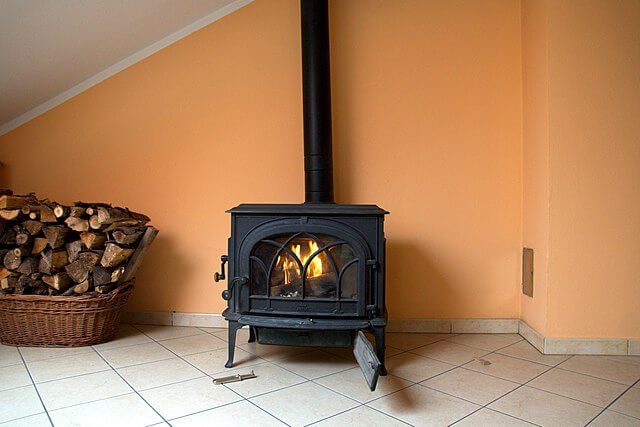
Recent government data has revealed that a surge in harmful emissions from wood-burning stoves has largely offset falls in road particle pollution.
Between 2012 and 2022, emissions of PM2.5 and PM10 from domestic combustion, particularly from heating homes with solid fuel like wood, rose by 19%. This rise contradicted strides made in adopting cleaner transportation and energy production methods.
Government statisticians said this “reflects the greater popularity of solid fuel appliances in the home such as wood-burning stoves”.
Despite their environmental repercussions, wood-burning stoves have enjoyed a surge in popularity, partly due to their cozy aesthetic, which has become increasingly fashionable. Sales spiked by 67% in the final quarter of 2022 compared to the previous year, with an estimated 1.5 million UK households now equipped with one.
PM2.5 particles, with a diameter of less than 2.5 micrometers, pose a significant health threat as they can penetrate deep into the human lung. Research indicates their association with various health issues, including heart and lung diseases, diabetes, cancer, compromised brain function, and premature births.
Europe witnesses over 400,000 premature deaths annually due to PM2.5 exposure. Even “eco-design” wood-burning stoves, as revealed by a study from Prof Chris Whitty, England’s chief medical officer, emit 450 times more toxic air pollution than gas central heating, while older, now banned stoves emitted a staggering 3,700 times more.
Dr Gary Fuller, an air pollution scientist at Imperial College London, said: “Smoke from home fires feels like a problem from a Dickens novel but the rising popularity of solid fuel heating is slowing progress in cleaning our air and undermining the major investments in reducing air pollution from traffic and industry.
“Government advice is framed around burning the right fuels, such as dry wood, and manufacturers are encouraging the sale of less polluting stoves to solve the problem but we need to be clear in our messages: any use of solid fuel is the most polluting way to heat your home.
“The latest update from Defra points to successes in some areas but also that some sources of air pollution are being overlooked. These include burning solid fuels at home and also air pollution from farming. Ammonia lost from fertiliser and manure is polluting both our air and our rivers. There is a big opportunity to work with farmers to improve our environment and our health but they are rarely at the table when we talk about air pollution solutions.”
Home emissions contribute significantly to PM2.5 levels, with domestic wood combustion accounting for 22% of these emissions. Furthermore, industrial biomass combustion, notably exemplified by subsidies to the Drax power plant for burning trees for electricity, adds to this concerning trend.
——————————————————————————
At Natural World Fund, we are passionate about stopping the decline in our wildlife.
The decline in our wildlife is shocking and frightening. Without much more support, many of the animals we know and love will continue in their decline towards extinction.
When you help to restore a patch of degraded land through rewilding to forests, meadows, or wetlands, you have a massive impact on the biodiversity at a local level. You give animals a home and food that they otherwise would not have had, and it has a positive snowball effect on the food chain.
We are convinced that this is much better for the UK than growing lots of fast-growing coniferous trees, solely to remove carbon, that don’t actually help our animals to thrive.
This is why we stand for restoring nature in the UK through responsible rewilding. For us, it is the right thing to do. Let’s do what’s right for nature!
Donate today at https://naturalworldfund.com/ and join in the solution!

